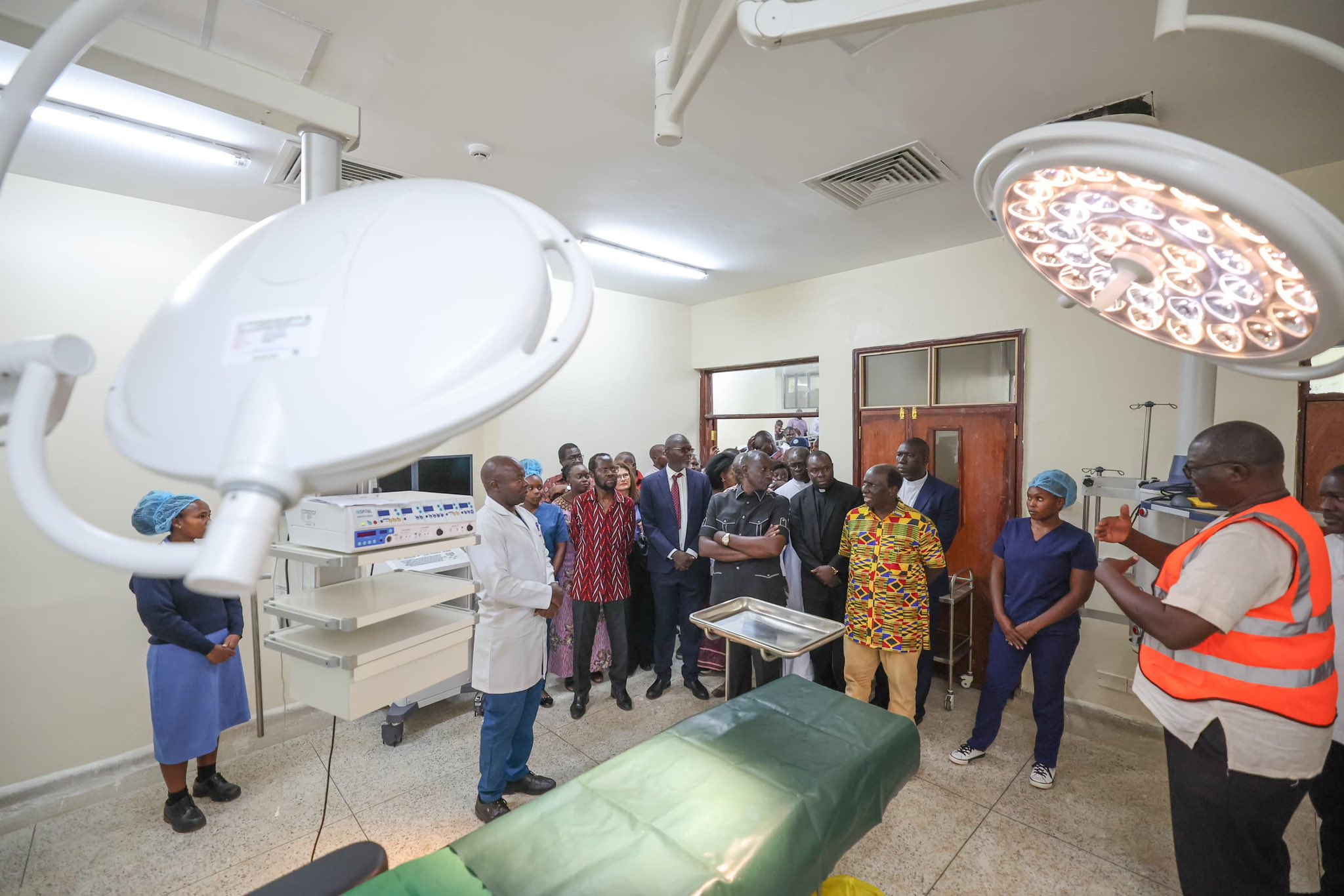Health spending to rise by 6% in 2025 amid unmet universal healthcare targets

The outlook comes at a time when Kenya is facing challenges in the transition from NHIF to the Social Health Authority (SHA).
The amount you spend on healthcare could increase by about six per cent in the coming year, according to a projection by intelligence and market insights firm, Economist Intelligence Unit.
In its latest healthcare outlook report, the unit says healthcare spending in countries will outpace inflation, growing by nearly six per cent in US dollar terms and 1.9 per cent in real terms.
More To Read
- Teachers’ Unions demand clarity as TSC plans to move 400,000 educators to state health scheme
- Over 100 facilities accredited by SHA to provide cancer care after protests
- Over 160 newborns, 14 mothers died during Kiambu doctors’ strike - Health CS Aden Duale
- From free to unaffordable: Why more Kenyan women are giving birth at home again
- Four suspects arrested for defrauding man of Sh251,000 in fake SHA registration scheme
- Five charged with defrauding Social Health Authority of Sh17.5 million
This as governments are also projected to miss their targets for universal healthcare.
Ageing populations, climate change and geopolitical tensions are further challenges projected to strain healthcare systems in the coming year.
The outlook comes at a time when Kenya is facing challenges in the transition from the previous health cover system, the National Hospital Insurance Fund (NHIF), to the newly formed Social Health Authority (SHA).
The ambition is part of the government's plan to attain the UN targets for Universal Healthcare Coverage (UHC).
Private healthcare providers in the country recently graded the government's transition plan poorly in their latest scorecard.
Low grade
They gave the state a disappointing Grade D (47 per cent).
The Rural and Urban Private Hospitals Association of Kenya (RUPHA) conducted its fifth scorecard survey from November 9 to 12, surveying 462 member healthcare facilities across the country.
The survey came amid growing frustration following the October 1 launch of the SHA, which reportedly aims to provide accessible, affordable, and quality healthcare to all Kenyans.
However, millions of low-income Kenyans relying on public facilities have yet to see the promised benefits.
While the government has allocated Sh6.1 billion for a smooth transition, health experts estimate that full implementation would require Sh168 billion to ensure the system's effectiveness.
As a result of such constraints together with the looming increased expenditure, the unit says countries' progress on the build-out of public healthcare systems will remain slow next year, as it has been since the pandemic.
About a decade ago, when the UN's sustainable development goals were adopted, 2023 was set as the target year for achieving the targets, which included extending UHC to one billion additional people.
"During the pandemic, these targets were deferred to 2025 but it now seems that this timeline will also be missed, jeopardising the even more ambitious targets set for 2030," the unit says.
"We also expect minimal progress in lowering the unaffordable out-of-pocket health costs for rural and poorer populations across Africa, Asia and Latin America."
The report further notes that governments will struggle to contain medicine prices in the coming year.
We expect pharmaceutical sales to rise by a robust 4.7 per cent in 2025, aided by demand for obesity drugs, mental health treatments and dementia medication, the unit adds in part.
"Countries that rely on drug imports may also face higher costs owing to the continued strength of the dollar, although moderating commodity prices should offset some of this for producers."
It however notes that this will not prevent companies from raising drug prices despite regulatory changes aimed at boosting competition and controlling such increases.
Top Stories Today











































